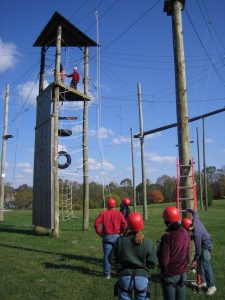In touting the benefits of distributed models of work, which I do often, there's a temptation to make the point that not having an office building and the energy-intensive practices that go with it (commuting, for example) must translate to a lower overall carbon footprint for distributed organizations.
While I think a lower carbon footprint is a possible benefit of distributed work, and one very much worth pursuing, it should not be taken as a given.
In fact, my experiences with distributed work (and in the tech world particularly) indicate that there are many, many energy-intensive practices to be considered, including:
- The energy required to light, heat and cool residences with home offices that might otherwise go unoccupied during the day. I imagine temperature control in cavernous co-working spaces is also energy-intensive.
- The computing power, equipment and energy usage at the growing number of data centers that support the many online services created and used by distributed workers (from collaborative office suites to audio/videoconferencing tools to Slack-bot cottage industry startups and more).
- Any additional tendencies for distributed workers to have supplies and equipment shipped to them individually on a regular basis, compared to bulk buying or centralized shipping to an office. (Amazon next-day delivery is killing people.)
- The materials, production processes and energy usage of laptops, phones and other devices that facilitate working from anywhere. Yes, there might be similar energy usage in an office environment, but whereas a physically central org might have an IT staff to repair/refurbish those items, with distributed that all mostly happens via shipping and may be less likely to facilitate re-using and recycling older devices.
- Air travel and related energy usage to enable in-person meetups of distributed workers.
The last one feels important to dwell on for a moment.
Aircraft usage and flying account for a growing percentage of the climate change impact of human activity, some estimate 4 to 9 percent. "Take one round-trip flight between New York and California, and you’ve generated about 20 percent of the greenhouse gases that your car emits over an entire year," says the New York Times, citing the EPA.
So from an energy usage perspective, "I don't commute to an office anymore" starts to feel like a bit less to celebrate if at the same time one is flying around to meetups or conferences several times per year instead. More so if your office might have been a reasonable walk or bike ride away.
Continue reading "Air travel and the carbon footprint of distributed work"

